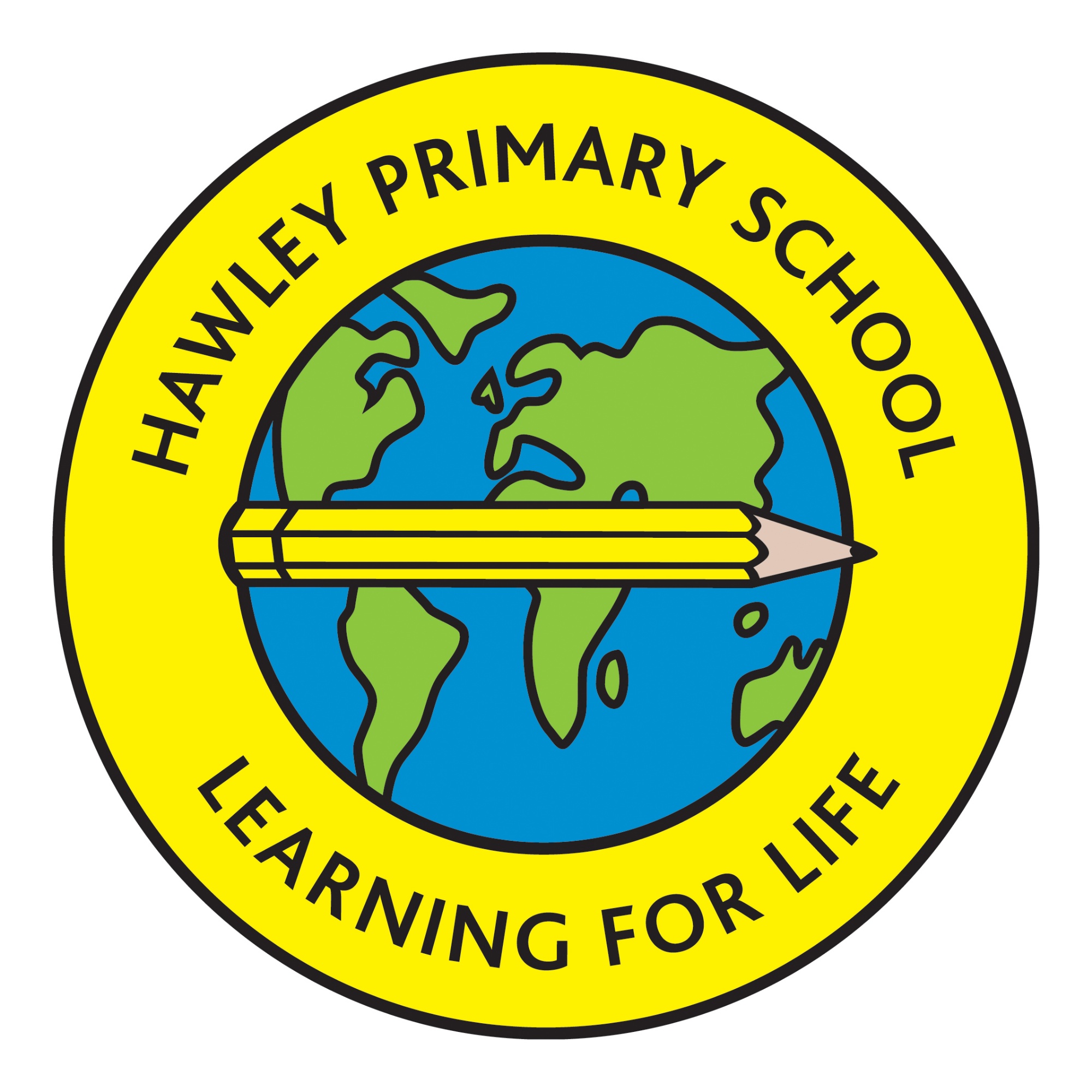Maths
Mathematics is a core subject in the National Curriculum, and we are currently sustaining the Mastery approach through collaboration with our regional MathsHub. Our medium-term plans are devised through a series of small steps. All children begin the year focusing on Number & Place Value and progress to learning about the Four Operations (+, -, x, ¸). These concepts are fundamental to long-term success in mathematics. To ensure ongoing fluency practise, the children in Years 1-6 complete daily Flashback Four questions to consolidate prior learning.
Our aim at Hawley Primary School is for children to enjoy Mathematics and have a positive attitude towards the study of the subject. In doing so, we work to ensure all learners feel successful and attain well in readiness for their next steps in education. We believe children learn most effectively by being actively involved in the teaching and learning within the classroom. We endeavour to equip children with the skills to find the answers to their own Mathematical questions and to further develop their curiosity about the world in which they live. As the children progress through the school, we seek to develop their ability to work independently and collaboratively, to listen, communicate and express their own views and in turn respect the views of others.
We are passionate about talk and Mathematical dialogue; giving children time to question, reason and conjecture through regular MMMs (Morning Maths Meetings). This is where the children are posed with an unfamiliar problem or unfamiliar vocabulary. We explicitly teach the heuristics needed for problem solving and the aim of MMMs is to reduce feelings of Maths anxiety and promote Mathematical talk.
We use a variety of teaching and learning styles in the teaching of Mathematics and adapt our techniques to support the needs of the pupils in our school. Each Mathematics lesson aim to develop the children’s Mathematical fluency, reasoning, and problem-solving skills. The children can use a wide range of resources including bead strings, number lines, numicon, dienes (also known as base 10) and small apparatus to support their work. IT software is used in Mathematics lessons for modelling ideas and methods, complimented using Seesaw to promote independence and home-school links regarding the children’s learning.

Our school runs a flexible, creative curriculum, and although much of the Mathematics is taught during a discreet Maths lesson, we constantly seek to make meaningful cross-curricular links to embed Maths into the bigger picture of each child’s learning, and to provide real life relevance to the concepts and skills that they are acquiring. This is a two–way process, so sometimes the Maths objectives may be taught as part of another topic, and at other times the topic objectives may be taught as part of the Maths.
For example:
- Children are taught addition and subtraction through adding and subtracting amounts of money and calculating change in practical contexts.
- When learning about WW2, the children in Years ¾ made 3D rationed baked bean cans and packing boxes as part of a geometry unit.
- During the Year 5/6 Space topic, the children practiced their place value skills in Science to round the length of a year on all the planets to the nearest whole number.
We recognise the importance of establishing a secure foundation in mental calculation and the recall of number facts. We want our children to understand numbers and to use them efficiently and confidently. To support the rapid recall of basic number facts we subscribe to Times Table Rock Stars and have a Table Mountain reward scheme which begins in Year 2 once the concepts of multiplication and division have been sufficiently taught. This continues right the way into Year 6. Pupils begin their journey up Table Mountain, aiming to beat the timer and earn stickers for their certificates. Once Table Mountain is conquered, children progress onto Mental Maths and Reasoning Rainbow in accordance with their year group. Please see the ‘Mental Fluency’ tab for further information.
